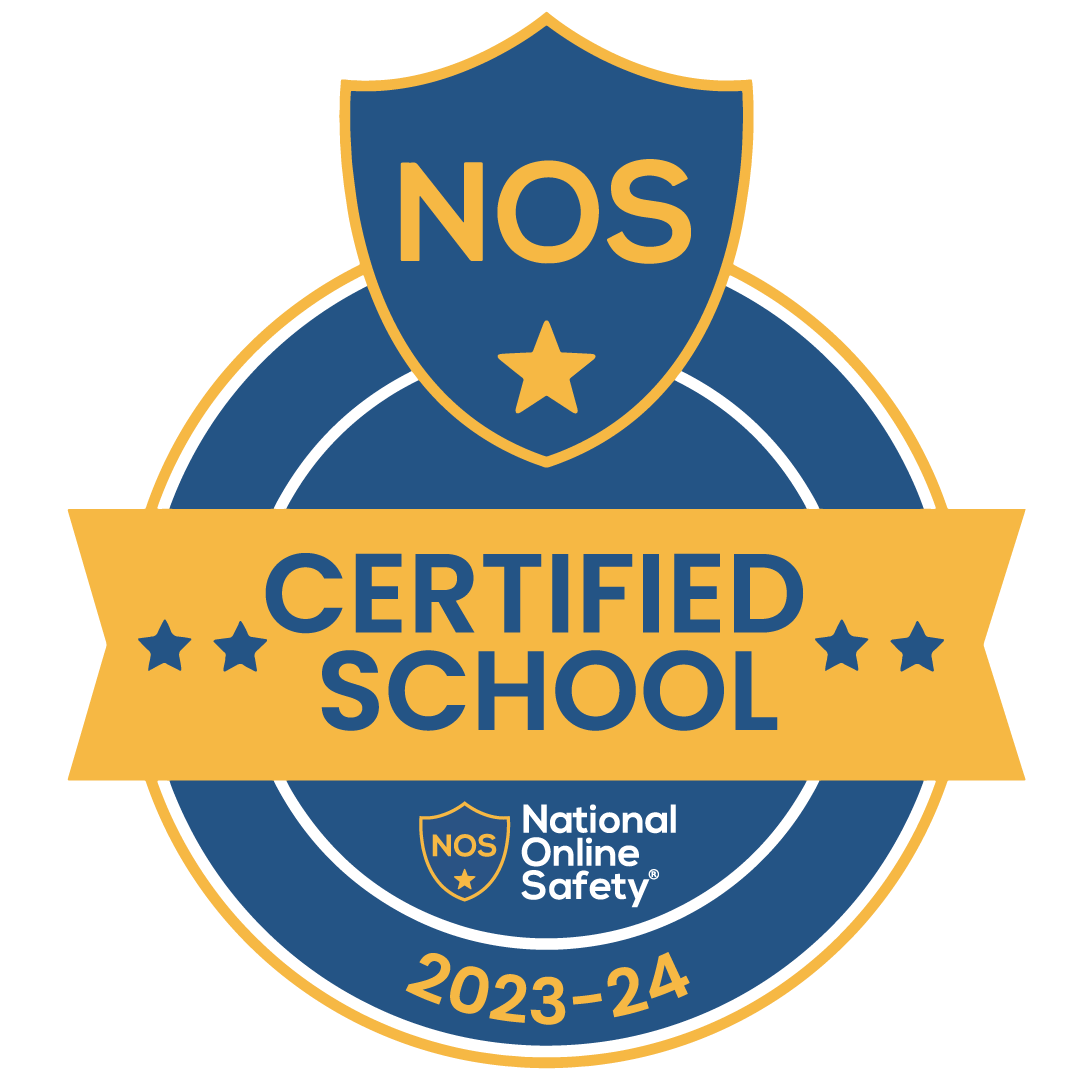Online Safety
We are a National Online Safety certified school. All of our teachers and support staff receive yearly training in protecting children from online harm, abuse and risks. This training is aligned with the guidance in the Keeping Children Safe in Education statutory guidance 2024.

Online Safety sessions are taught as part of children's Computing sessions and are based on the Kapow Primary Computing scheme of work. In addition, the school runs reactive sessions for groups of children in response to specific online safety incidents or other identified need.
Click on the Online Safety Parent's Guide below for advice on online risks and how to help your children to stay safe online:
ONLINE SAFETY - A PARENT'S GUIDE
As a parent or carer, one of your key roles is to keep your children safe and this includes helping them to be safe when they are online. Being online, presents lots of great opportunities for children, from supporting them with school work to communicating with friends and family. However, being online can also come with numerous risks. At home is where your child will spend most of their time online, so it is vital for you to know how to help keep them safe.
Key considerations
Sharing information:
Does your child overshare when they are on the Internet? Do they know not to share personal information such as their full name or address online? Spend time talking to your child about what is safe and not safe to share online.
Age restrictions:
Are you aware of the content your child is accessing? Some content out there is not suitable for children. If children are playing games online, they usually come with an age certification but when accessing online content through a video streaming platform, this is not always the case. Encourage your child to ask you for guidance when accessing new content or websites so you can help show them if it is safe and/or suitable for them.
Gaming:
More and more games are regularly available for your child to access online. Online games may involve online chats, live chats or include pop-up advertisements that encourage your children to buy products or more lives. Regularly talk to your child about what games they are playing online and what peripheral content they might be subjected to. Websites such as https://www.net-aware.org.uk/networks/ can also support you with keeping up to date with new games that are available and their age restrictions.
Online bullying:
Children find it a lot easier to be hurtful towards others when they are online than face to face. Encourage regular talks with your child about how to be kind when they are online. When online, your child could also be a victim of bullying. If you do suspect your child is being bullied, talk to them and ask them to explain what is happening. Most apps and websites have the ability to block and report users. You can use this website to find out how: https://www.net-aware.org.uk
Online grooming:
It is important for your child to understand that not everybody they meet online is who they say they are. Regularly review your child’s friends and contacts and ask them who they have been talking to online. Any incidents can be reported to www.ceop.police.co.uk. Screen time: With an increased dependency on technology, it can sometimes be hard to reach a balance between screen time and ‘non-screen’ time. Encourage activities away from the screen such as playing a board game or going for a walk.
Online safety checklist:
- Ensure that location is disabled on any device your child uses so that your child can’t accidentally share their location.
- Ensure that no credit cards or bank details are linked on your child’s device, or if they are, make sure they can only be used with a password.
- On some devices, parents receive a message when their child tries to download any apps – on Apple iOS, this is called 'Ask to Buy' and can be used on Family Sharing.
- Ensure that devices are set up appropriately for children by choosing “child” during the set-up process.
- Check children’s privacy settings on any social network they are using to ensure they cannot be contacted by people they don’t know.
- Have regular conversations with your child to find out what they are doing online, to find out if they are having any worries and problems.
- Encourage a healthy balance between ‘screen’ and ‘non-screen time’. Parental settings do allow for devices to be locked after a set time.
